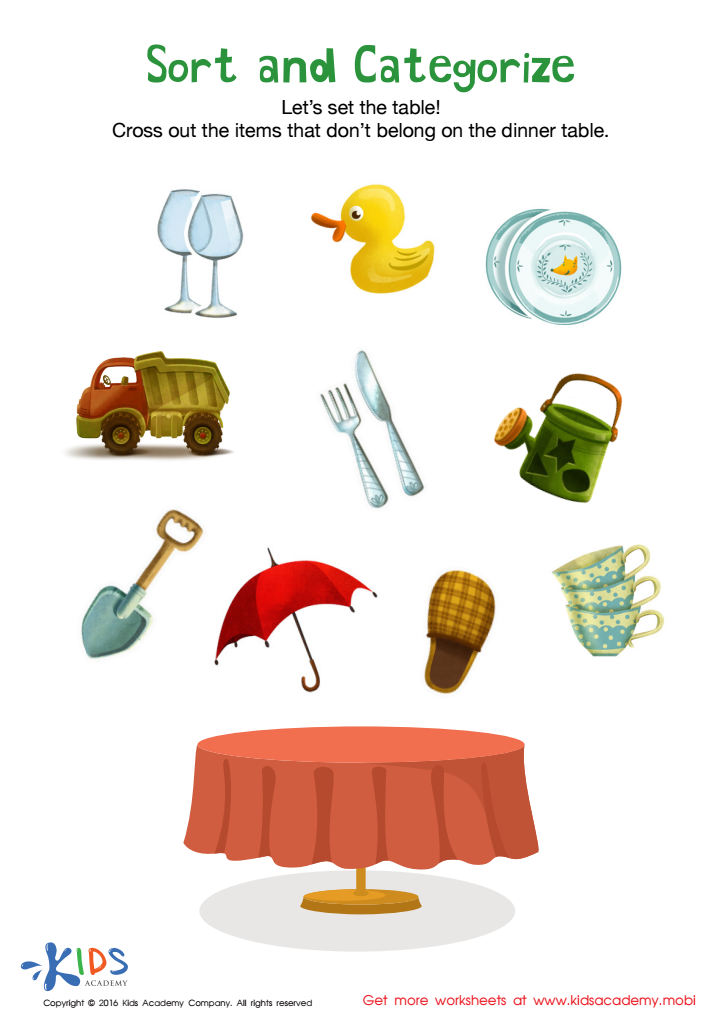Shape Recognition Matching Worksheets for Ages 4-6
8 filtered results
-
From - To
Discover our Shape Recognition Matching Worksheets designed specifically for children ages 4 to 6. These engaging resources help young learners develop essential shape identification skills through fun activities that foster critical thinking and visual recognition. Each worksheet features vibrant illustrations and interactive exercises to captivate little ones while reinforcing their knowledge of different shapes, such as circles, squares, and triangles. Perfect for home or classroom use, these worksheets not only make learning enjoyable but also enhance fine motor skills as kids practice matching shapes. Get started today and watch your child's confidence in shape recognition grow!
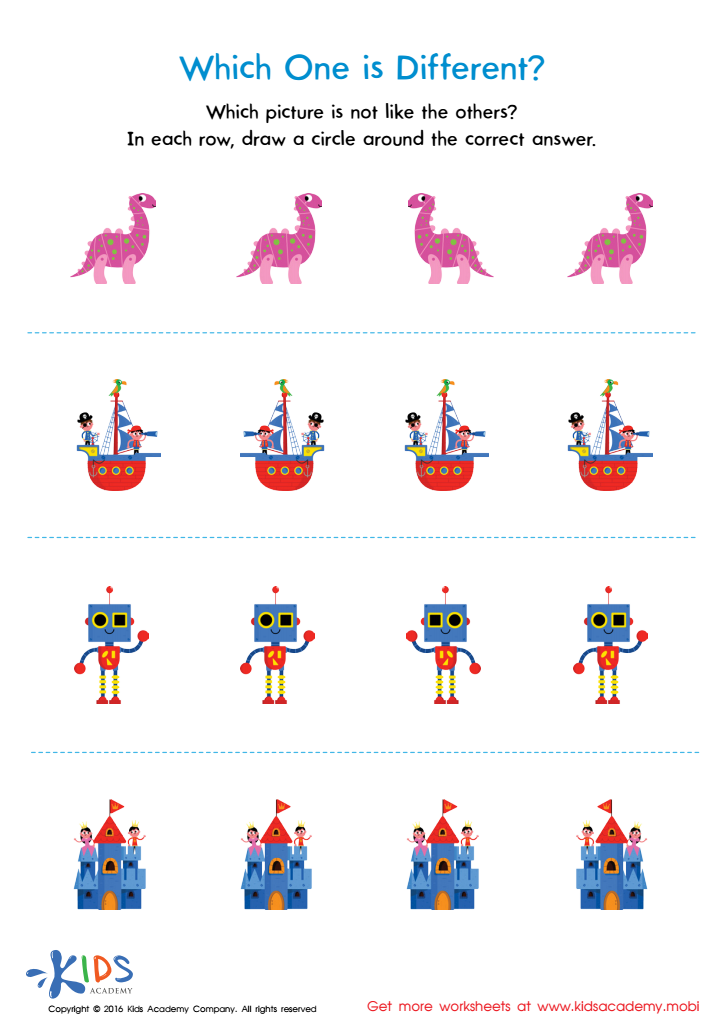

Which One Is Different Worksheet
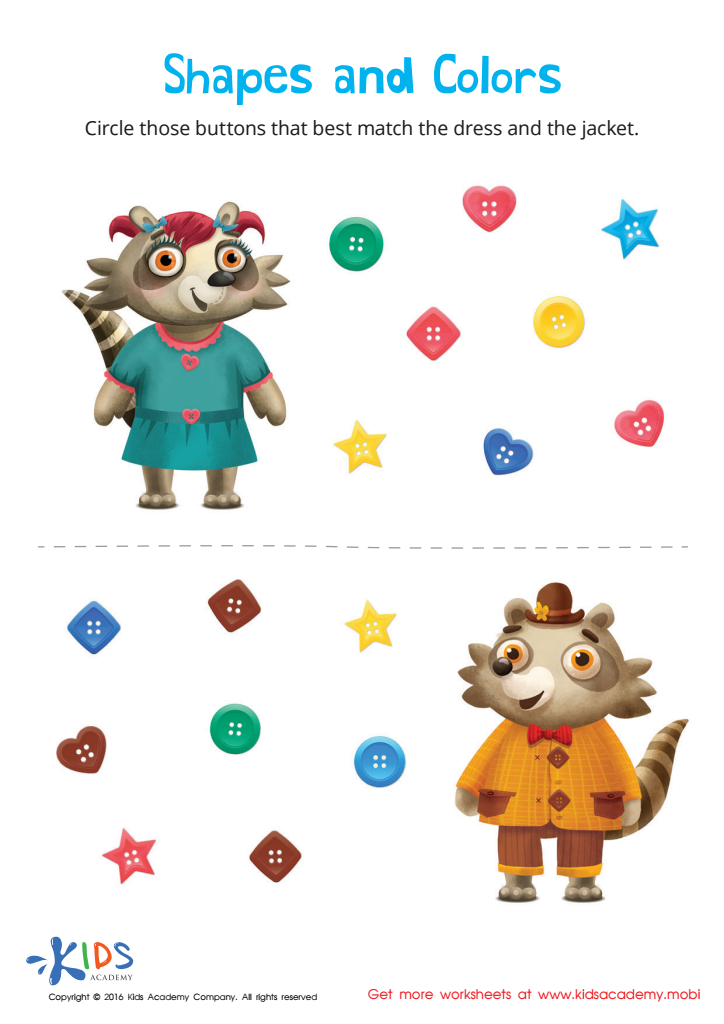

Matching: Shapes and Colors Worksheet
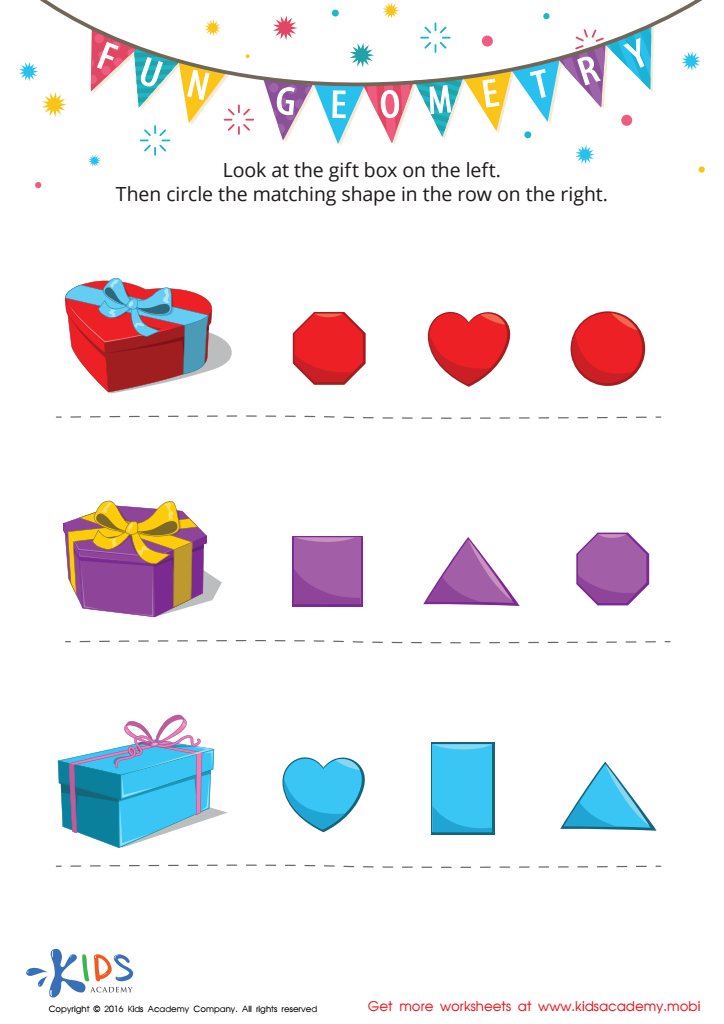

Fun Geometry Worksheet
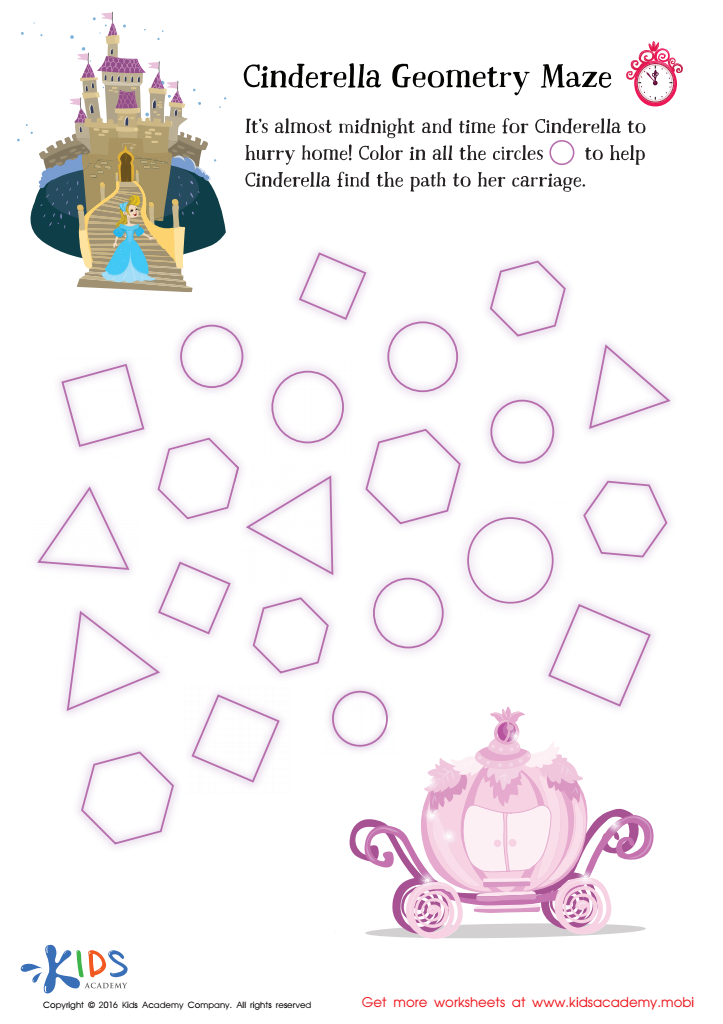

Cinderella Geometry Maze Worksheet
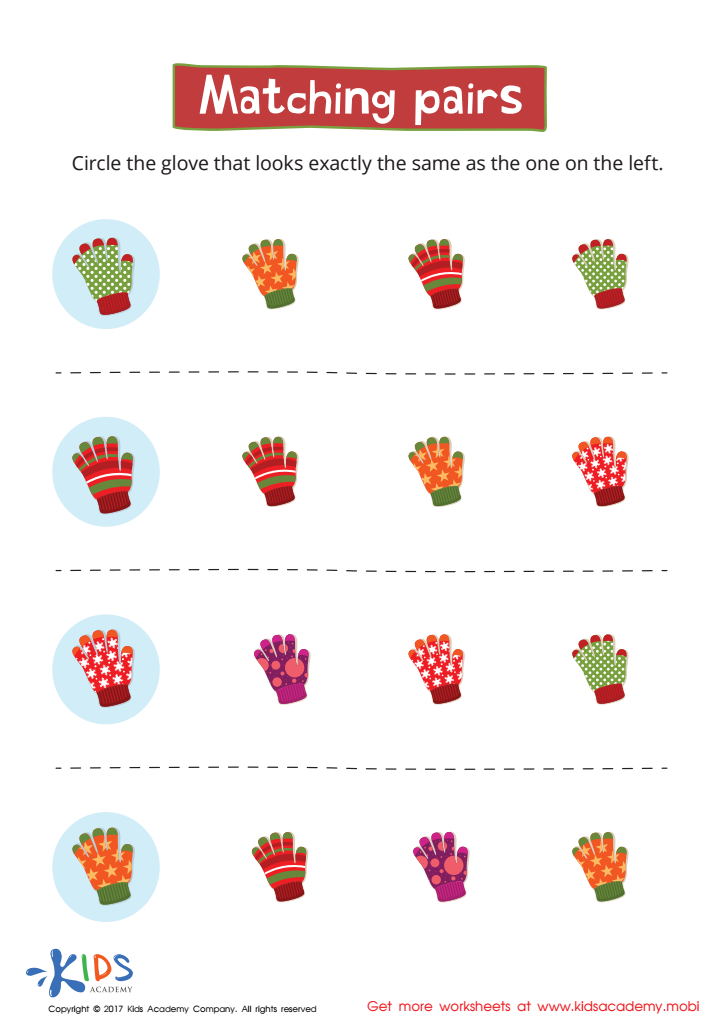

Matching: Matching Pairs Worksheet
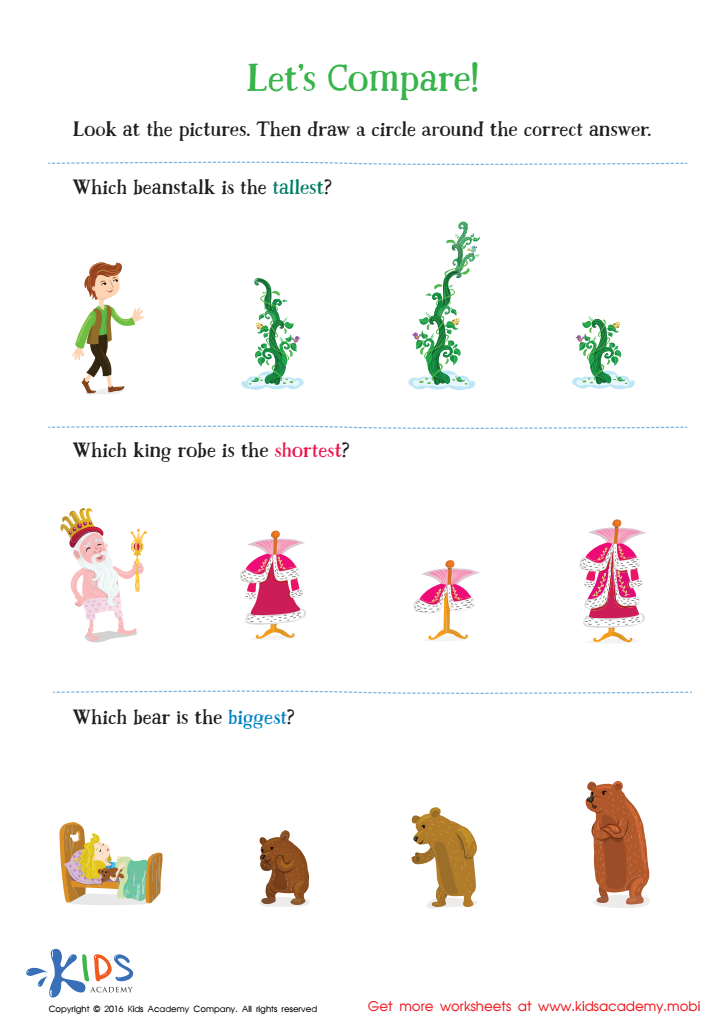

Fairy Tale Worksheet: Let's Compare
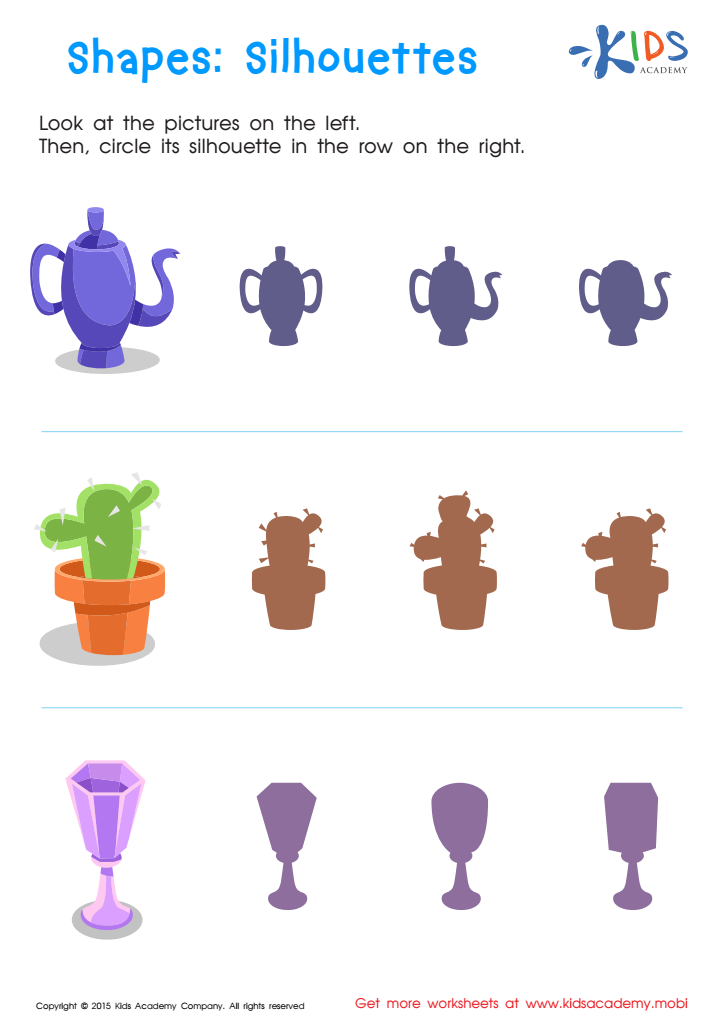

Silhouettes – Shapes Worksheet
Shape recognition and matching are foundational skills in early childhood education, particularly for children aged 4-6. Parents and teachers should care about these skills for several key reasons. Firstly, shape recognition is vital for cognitive development; it helps children categorize and make sense of the world around them. By identifying and matching shapes, children enhance their visual perception, spatial awareness, and problem-solving abilities.
Furthermore, these skills are closely linked to mathematical concepts. Recognizing and describing shapes lays the groundwork for understanding geometry, which is an essential part of the math curriculum. Incorporating shape matching activities in playful ways can ignite a child's interest in learning and encourage exploration.
Additionally, engaging in shape recognition games fosters social skills. When children participate in group activities, they learn to cooperate, share, and communicate effectively with peers.
Lastly, focusing on shape recognition provides a fun and interactive way to nurture a child's creativity. Arts and crafts centered around shapes encourage imaginative play while reinforcing their learning in an enjoyable context. For all these reasons, prioritizing shape recognition and matching is essential for parents and teachers, as it contributes significantly to a child's overall development and readiness for future learning challenges.
 Assign to My Students
Assign to My Students

